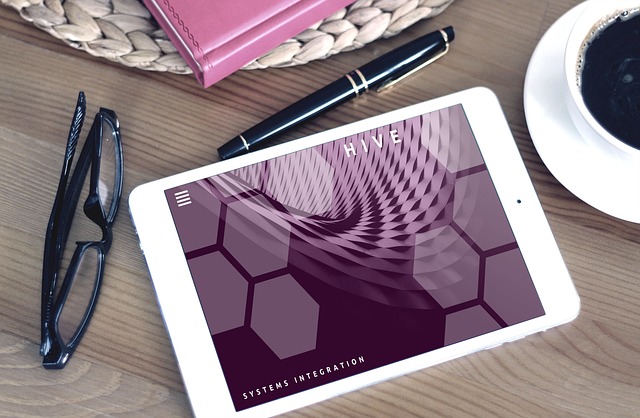AI chatbot implementations on platforms like OpenTable have transformed customer service in restaurants by offering real-time assistance, managing table preferences, and providing 24/7 accessibility. These integrations enhance user experiences, reduce staff workload, improve operational efficiency, and boost business outcomes, thereby enhancing brand reputation. To leverage AI chatbots effectively, follow a step-by-step approach: assess needs, select a platform, design conversation flows, ensure seamless integration with OpenTable, and continuously test and optimize. Best practices include ensuring NLP accuracy, maintaining a conversational tone, and building trust. Future trends involve enhanced contextual understanding, voice interfaces, and AR integrations, promising to revolutionize customer service in dining.
“Unleash the power of conversation with AI business chatbot implementation services. In today’s digital landscape, these tools are transforming customer interactions, offering unprecedented benefits from improved efficiency to enhanced user experiences. This article explores the strategic integration of AI chatbots, using OpenTable as a case study, providing a step-by-step guide for seamless implementation. We also delve into best practices and future trends shaping this innovative technology, ensuring businesses stay ahead in the competitive market.”
- Understanding AI Chatbot Integrations: Benefits for Businesses
- Implementing AI Chatbots with OpenTable: A Step-by-Step Guide
- Best Practices and Future Trends in AI Business Chatbot Services
Understanding AI Chatbot Integrations: Benefits for Businesses

AI chatbot implementations have transformed the way businesses interact with their customers, offering numerous advantages. When integrated into platforms like OpenTable, these chatbots enhance user experiences significantly. For instance, they can assist users in making restaurant reservations, providing real-time availability and managing table preferences. This not only improves customer satisfaction but also reduces the workload on staff, allowing them to focus on other critical tasks.
Moreover, AI chatbot integrations offer 24/7 accessibility, ensuring that customers receive immediate assistance regardless of the time or day. They can also handle frequent queries efficiently, freeing up human agents to tackle more complex issues. This improved operational efficiency translates into better business outcomes and enhanced brand reputation.
Implementing AI Chatbots with OpenTable: A Step-by-Step Guide

Implementing AI chatbots for your business, specifically through integrations with platforms like OpenTable, can streamline operations and enhance customer service. Here’s a step-by-step guide to help you get started.
1. Assess Your Needs: Begin by understanding your restaurant’s specific requirements. Identify the tasks you want the AI chatbot to handle, such as reservation management, answering frequent customer queries, or providing menu recommendations. This will guide your choice of chatbot features and platform compatibility, ensuring a seamless integration with OpenTable’s existing systems.
2. Select an AI Chatbot Platform: Choose a platform that offers robust API capabilities for easy integration with OpenTable. Look for providers who can customize chatbots to match your brand voice and provide conversational AI solutions tailored to the restaurant industry. This step is crucial as it sets the foundation for a successful chatbot implementation, ensuring it aligns with your business goals and OpenTable’s functionality.
3. Design Conversation Flows: Create interactive conversation flows that mimic real-life interactions. Map out potential customer queries and design paths that guide users through the chatbot effectively. Consider using branching conversations to cater to diverse user needs. This ensures that customers receive accurate information, leading to increased satisfaction and efficient problem resolution.
4. Integrate with OpenTable: Collaborate with your chosen AI chatbot platform’s developers to seamlessly integrate their technology with your OpenTable account. Ensure that reservation data, customer profiles, and menu details are accessible to the chatbot, enabling personalized interactions. A successful integration will allow customers to interact naturally while providing your team with valuable operational insights.
5. Test and Optimize: Conduct thorough testing to identify any glitches or areas for improvement. Gather feedback from employees and a select group of customers to refine the chatbot’s performance and user experience. Regularly update and enhance the chatbot based on usage data, ensuring it remains effective in meeting customer expectations and contributing to your business’s bottom line.
Best Practices and Future Trends in AI Business Chatbot Services

Implementing AI business chatbots is a game-changer for customer service, offering efficient and personalized experiences. Best practices include ensuring natural language processing (NLP) accuracy through rigorous testing and continuous learning models. Chatbots should also be designed with a human touch, maintaining a conversational tone and empathy to build trust. Integrations with existing systems, like AI chatbot integrations with OpenTable, streamline operations by automatically handling reservations, providing menu recommendations, and offering table availability in real-time.
Looking ahead, future trends suggest enhanced contextual understanding, allowing chatbots to gather and utilize customer history for more tailored interactions. Voice user interfaces will also gain prominence, making chatbots accessible through voice commands. Additionally, the integration of AI with augmented reality could create immersive experiences, such as virtual restaurant tours guided by chatbots, revolutionizing how customers interact with dining services.
AI business chatbot implementation services are transforming the way companies interact with customers. By leveraging AI chatbot integrations with platforms like OpenTable, businesses can streamline operations, enhance customer service, and drive growth. As we look to the future, best practices and trends suggest that these chatbots will become increasingly sophisticated, offering personalized experiences and intelligent problem-solving capabilities. Embracing AI chatbot technology is no longer an option but a necessity for any forward-thinking business aiming to stay competitive in today’s digital landscape.
